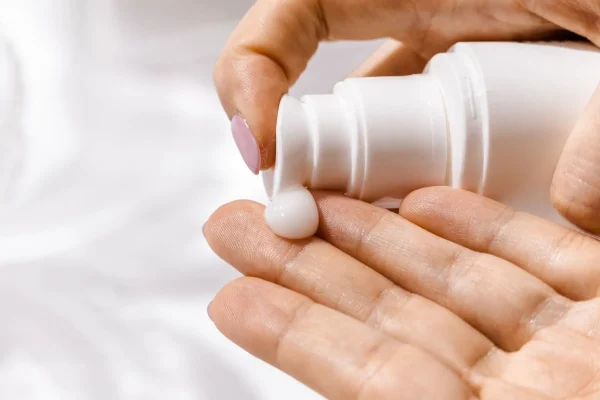
Understanding Benzene in Sunscreens
Benzene in sunscreens has been a hot topic in the skincare community lately. If you’re curious about why this ingredient has sparked concern, you’re in the right place. Let’s explore what benzene is, how it ended up in some sunscreens, whether it’s harmful, and what you can do to stay safe while protecting your skin.
What is Benzene?
Benzene is a chemical commonly used in industries to produce plastics, synthetic fibers, and resins. However, it’s not an ingredient that should appear in personal care products, especially sunscreens. Benzene is classified as a human carcinogen, meaning long-term exposure could increase the risk of cancer. It’s important to note that benzene contamination in sunscreens isn’t intentional but can happen during manufacturing.
How Does Benzene End Up in Sunscreens?
Benzene may appear in sunscreens due to contamination during production, particularly in products that use aerosol sprays. The issue is often linked to the solvents or propellants used in these formulas. While manufacturers don’t add benzene intentionally, even trace amounts can raise alarms because sunscreens are meant to be applied liberally and frequently.
Why is Benzene in Sunscreens a Concern?
The concern arises because sunscreens are designed for regular use, and they are often applied to large areas of the skin. Prolonged or repeated exposure to benzene, even in small amounts, could pose health risks, including:
- Increased cancer risk, particularly leukemia.
- Skin irritation in sensitive individuals.
- Potential harm to internal organs with significant exposure.
Are All Sunscreens Unsafe?
No, not all sunscreens contain benzene. Many brands have strict quality controls to prevent contamination. Additionally, various organizations have tested sunscreens to identify safe options free from benzene. Choosing sunscreens from reputable brands and being informed about the issue can help you make safer choices.
Recommended Benzene-Free Sunscreens
To ensure you’re protecting your skin safely, consider these trusted benzene-free options:
- La Roche-Posay Anthelios Melt-in Milk Sunscreen SPF 100
This broad-spectrum sunscreen offers high SPF protection and is dermatologist-recommended. - Neutrogena Sheer Zinc Dry-Touch Sunscreen SPF 50
Made with 100% zinc oxide, it’s a great option for sensitive skin and is free from harmful contaminants. - Thinkbaby Safe Sunscreen SPF 50+
This sunscreen is designed for babies and children but also works well for adults. It’s reef-safe and gentle. - EltaMD UV Clear Broad-Spectrum SPF 46
A lightweight, non-greasy option that’s perfect for acne-prone skin. - Blue Lizard Sensitive Mineral Sunscreen SPF 30+
Known for its safe and effective mineral-based formula, this sunscreen is ideal for daily use.
Tips to Choose Safe Sunscreens
- Look for mineral sunscreens with zinc oxide or titanium dioxide.
- Opt for lotions instead of aerosol sprays.
- Check for third-party testing reports when available.
- Choose products labeled as benzene-free.
Frequently Asked Questions About Benzene in Sunscreens
1. What is benzene, and why is it harmful?
Benzene is a chemical classified as a human carcinogen. Prolonged exposure can increase the risk of developing cancer.
2. How can I tell if my sunscreen contains benzene?
Benzene does not appear as an ingredient, so check for brands that explicitly state their products are benzene-free or review third-party test reports.
3. Are aerosol sunscreens more likely to contain benzene?
Yes, benzene contamination is more common in aerosol products due to the solvents and propellants used.
4. Should I stop using sunscreen altogether?
No, sunscreen is essential for protecting your skin from harmful UV rays. Opt for benzene-free options.
5. Can benzene in sunscreen harm my skin immediately?
Immediate harm is unlikely unless you have sensitive skin, but long-term exposure may pose health risks.
6. How do I find out if my sunscreen has been recalled?
Check updates from the FDA or third-party testing organizations like Valisure.
7. Is mineral sunscreen safer than chemical sunscreen?
Mineral sunscreens are less likely to contain contaminants like benzene and are a safer choice for sensitive skin.
8. What should I do if I’ve used a benzene-contaminated sunscreen?
Stop using the product and consult your healthcare provider if you’re concerned about prolonged exposure.
9. Are expensive sunscreens less likely to have benzene?
Price doesn’t guarantee safety. Always check for third-party testing and benzene-free labeling.
10. Can I rely on DIY sunscreens to avoid benzene?
We do not recommend DIY sunscreens because they often lack the necessary SPF protection and safety standards.
Conclusion
Benzene in sunscreen is a serious issue, but it shouldn’t deter you from protecting your skin from harmful UV rays. By choosing benzene-free sunscreens and staying informed about product recalls, you can enjoy the sun safely. Remember, your skin’s health is worth the extra effort of selecting the right products. Stay safe, and always prioritize quality over convenience when it comes to skincare.

Leave a Reply